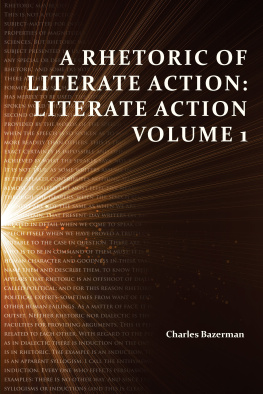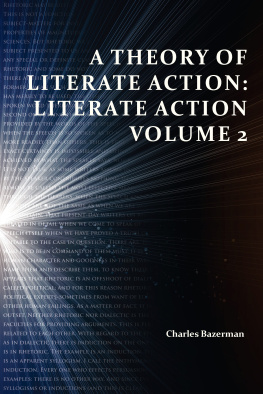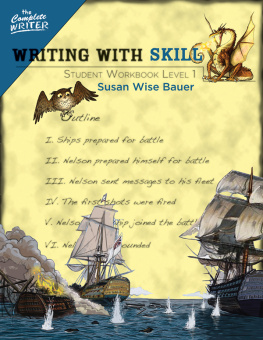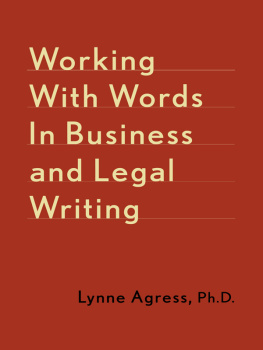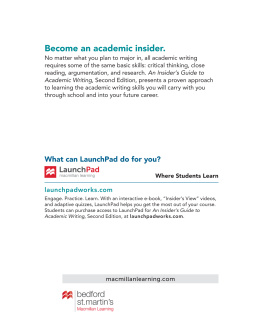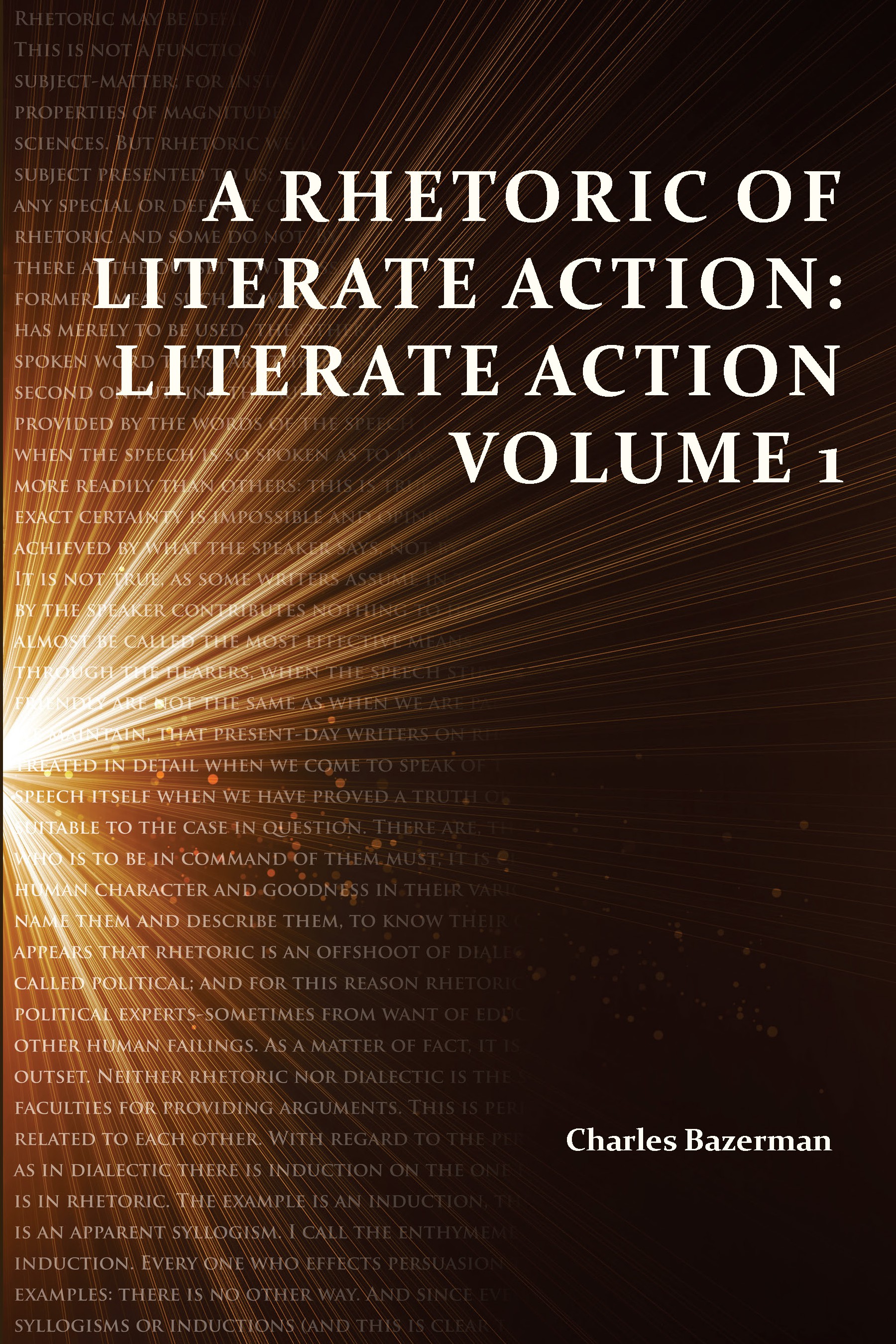A Rhetoric of Literate Action: Literate Action, Volume 1
By Charles Bazerman
The WAC Clearinghouse
Fort Collins, Colorado
Parlor Press
www.parlorpress.com
Anderson, South Carolina
PERSPECTIVES ON WRITING
Series Editor, Susan H. McLeod
The Perspectives on Writing series addresses writing studies in a broad sense. Consistent with the wide ranging approaches characteristic of teaching and scholarship in writing across the curriculum, the series presents works that take divergent perspectives on working as a writer, teaching writing, administering writing programs, and studying writing in its various forms.
The WAC Clearinghouse and Parlor Press are collaborating so that these books will be widely available through free digital distribution and low-cost print editions. The publishers and the Series editor are teachers and researchers of writing, committed to the principle that knowledge should freely circulate. We see the opportunities that new technologies have for further democratizing knowledge. And we see that to share the power of writing is to share the means for all to articulate their needs, interest, and learning into the great experiment of literacy.
Recent Books in the Series
Katherine V. Wills and Rich Rice (Eds.), ePortfolio Performance Support Systems: Constructing, Presenting, and Assessing Portfolios (2013)
Mike Duncan and Star Medzerian Vanguri (Eds.), The Centrality of Style (2013)
Chris Thaiss, Gerd Bruer, Paula Carlino , Lisa Ganobcsik-Williams, and Aparna Sinha (Eds.), Writing Programs Worldwide: Profiles of Academic Writing in Many Places (2012)
Andy Kirkpatrick and Zhichang Xu, Chinese Rhetoric and Writing: An Introduction for Language Teachers (2012)
Doreen Starke-Meyerring, Anthony Par, Natasha Artemeva, Miriam Horne, and Larissa Yousoubova (Eds.), Writing in Knowledge Societies (2011)
Martine Courant Rife, Shaun Slattery, and Dnielle Nicole DeVoss (Eds.), Copy(write): Intellectual Property in the Writing Classroom (2011)
David Franke, Alex Reid, and Anthony Di Renzo (Eds.), Design Discourse: Composing and Revising Programs in Professional and Technical Writing (2010)
Publication Information
The WAC Clearinghouse, Fort Collins, Colorado 80523-1052
Parlor Press, 3015 Brackenberry Drive, Anderson, South Carolina 29621
Copyright 2013 by Charles Bazerman . This work is licensed under a Creative Commons Attribution-Noncommercial-No Derivative Works 3.0 United States License.
Printed in the United States of America
Library of Congress Cataloging-in-Publication Data Pending
A Rhetoric of Literate Action: Literate Action Volume 1 / by Charles Bazerman.
pages cm. -- (Perspectives on writing)
Includes bibliographical references.
ISBN 978-1-60235-473-9 (pbk.: acid-free paper) -- ISBN 978-1-60235-474-6 (hardcover: acid-free paper) -- ISBN 978-1-60235-475-3 (adobe ebook) -- ISBN 978-1-60235-476-0 (epub)
Copyeditor: Don Donahue
Designer: Mike Palmquist
Series Editor: Susan H. McLeod
The WAC Clearinghouse supports teachers of writing across the disciplines. Hosted by Colorado State University, it brings together scholarly journals and book series as well as resources for teachers who use writing in their courses. This book is available in digital format for free download at .
Parlor Press, LLC is an independent publisher of scholarly and trade titles in print and multimedia formats. This book is available in paperback, cloth, and Adobe eBook formats from Parlor Press at .
Contents
A Rhetoric of Literate Action: Literate Action
Volume 1
Introduction
Writing can seem an amorphous task. Writers seem to fill blank pages with inventions of endless possibilitiesfrom cookbooks and instructions for the latest electronic gadget to prayer books and legal codes, from corporate reports on emerging markets and botanic treatises on leaf veins of deciduous trees to undergraduate papers for history courses and personal diaries of self-doubts. How do people do this amazing variety of things through writing? What can we say that would help us do these things more effectively?
Indeed the variety seems so great that general advice or analysis seems quixotic, and we ought to focus only on specific kinds of writing. One might be able to say something useful about historically-evolved cookbooks, and how one might go about producing one that speaks to the commercial market in the United States in the early twenty-first century. We have learned things about technical writing, business, and legal writing that have helped inform writing education of professionals in each of these domains. Research and pedagogy in Writing Across the Curriculum, in the Disciplines and Professions, and in the Workplace have guided approaches for developing writing of many specific types.
If the writing task is specific enough, detailed instructions can direct the texts completion, such as filling out a government form properly (at least in the particular version of the form used in a particular year)very detailed specifications tell us what we should write in each box and our writing choices are limited as to which address or ethnicity we might report. Even if the form contains a more open-ended narrative, such as in a grant application, often the material that needs to be covered and the order it should be covered in are directed by instructions and regulations. Such narrowed focus helps direct our work, but it also limits our thinking, expression, identities, and commitments. In the extreme cases of filling out forms we can become powerless subjects of bureaucratic definitions and regulations.
Yet writing can be a powerful tool of thinking, feeling, identity, commitment, and action. In turning our impulses into words, we can reveal ourselves to ourselves and to the world, and we can take place in important debates, movements, and activities. Writing forms the playing fields of our literate times and each piece of writing we do claims a place, identity, meaning, and action on those fields of life. The more we can write beyond the bounds of constrained bureaucratic prescriptions, the more we gain power to define and represent ourselves in the literate world.
But the problem of writing seems so amorphous that once we step out of highly directed, highly instructed writing situations we may quickly feel at sea, not knowing which direction to take and without signs to help us gain our bearings and make decisions. Even if we are released on a small confined, pond, such as writing a paper for a university political science course on political parties where we are told what ideas to refer to and which cases to discuss, we may still struggle to know which direction to go in.
Of course, in writing an essay for a political science course, the more we know about political science, the longer we have been in the course and have known the professor, the more political science papers we have read and written, the more we have learned the vocabulary and read the literature of political science and the historical accounts of political parties, and the more we know the genres of the field, then the more effectively and efficiently we can address the task. Yet underlying questions remain about what we want to accomplish and how we can do it in more deeply effective ways; that is, we cannot reduce our writing just to type, but must create it anew from our interests, resources, thoughts, and perceptions.
What would be useful in this and many other circumstances is a way of understanding our writing situation and what we might do with itnot just how writing is generally done in these circumstances but how we might transform the circumstances through our participation. This volume, A Rhetoric of Literate Action , offers an approach to understanding writing situations and how we can respond creatively in deep and transformative ways, because we understand the game and our moves more deeply. The first four chapters of this volume provide a framework for identifying and understanding the situations writing comes out of and is directed toward. The next four chapters then consider how a text works to transform a situation and achieve the writers motives as the text begins to take form. The final four chapters provide more specific advice of the work to be accomplished in bringing the text to final form and how to manage the work and ones own emotions and energies so as to accomplish the work most effectively.

